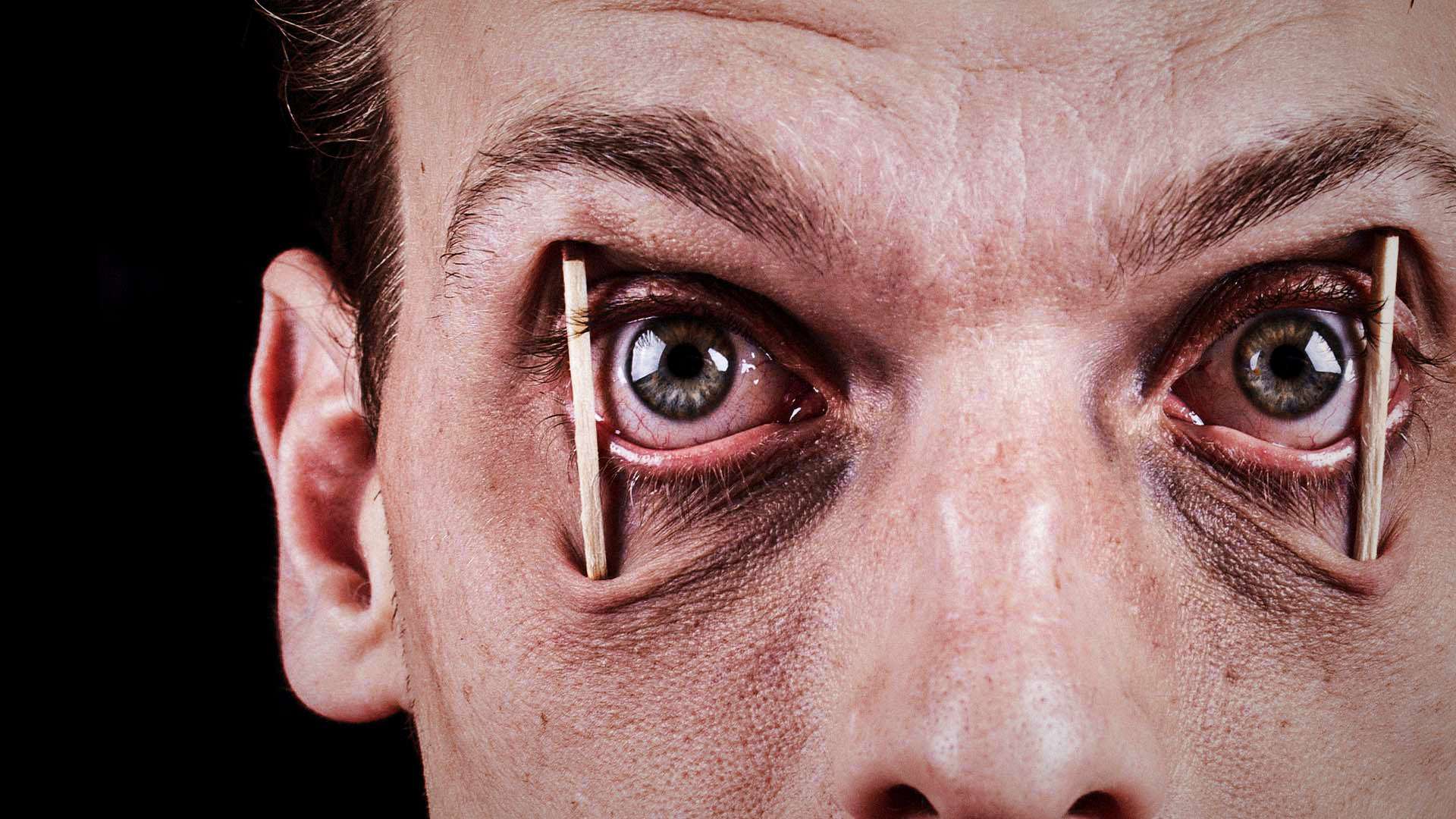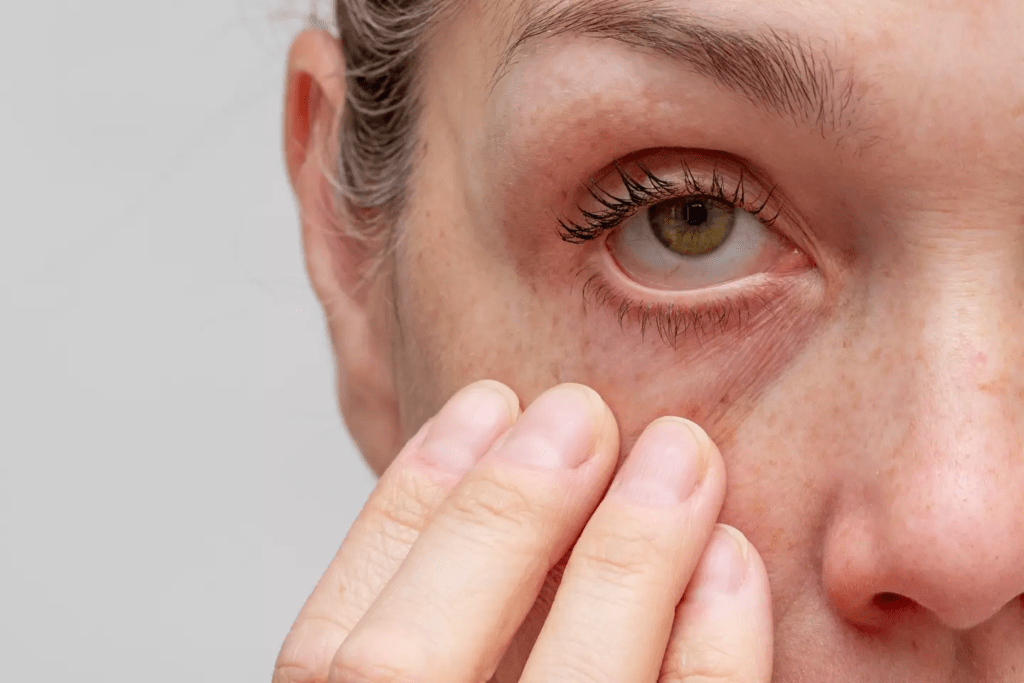What Happens If You Stop Blinking for a Few Hours: The Alarming Truth

In the realm of childhood games and light-hearted competitions, staring contests have long been a favorite pastime. Whether it was a friendly challenge with siblings or an amusing activity during recess, most of us have indulged in this peculiar game. Perhaps, you’ve even squared off with your pet in a playful test of endurance. But have you ever pondered the potential consequences of taking this innocent contest to extremes—say, by refraining from blinking for a few hours?
While holding a gaze for a minute or two might seem harmless, the reality of extended non-blinking is far less benign. Even brief periods of unblinking can leave our eyes dry and irritated. If you were to abstain from blinking for several hours, the ramifications for your eye health would be severe.
The Importance of Blinking: A Natural Necessity
Blinking is more than a reflexive action; it is a crucial process for maintaining the health and functionality of our eyes. On average, humans blink between 14,000 and 19,200 times per day. Each blink helps to spread a thin layer of tears across the surface of the eye, providing necessary moisture, nutrients, and protection. Without this process, the eyes would quickly dry out, leading to discomfort and potential damage. Blinking also helps to clear away small particles of debris that may have entered the eye, which could otherwise cause irritation or infection.

Additionally, blinking aids in the distribution of essential oxygen across the eye’s surface. Since the cornea does not have its own blood supply, it relies heavily on the tear film to deliver oxygen. This makes blinking an essential activity for keeping the eyes healthy and functioning correctly. Understanding the importance of blinking helps us appreciate why it’s crucial to maintain a regular blinking pattern, especially during prolonged periods of screen use or other activities that can reduce blink rate.
What Happens When You Stop Blinking?
Immediate Effects: Dryness and Discomfort
Within the first 30 seconds of ceasing to blink, the moisture on your eye begins to evaporate. A simulation by Zack D Films illustrates this vividly, showing how the initial layer of moisture rapidly dries out. Without the replenishment provided by blinking, your eyes would soon feel dry and itchy—a discomfort that most of us have experienced after staring at a screen for too long.
This dryness is not just an annoyance; it can also impair your ability to concentrate and perform tasks that require visual focus. The tear film, which usually maintains a smooth and clear optical surface, becomes disrupted, causing visual disturbances. In the absence of blinking, the eye’s surface becomes increasingly irregular, leading to fluctuations in vision quality.
Short-Term Consequences: Blurred Vision
As the minutes tick by, the tear film that normally coats your eye starts to break down. This film is essential for clear vision, and its absence leads to blurred sight. By the ten-minute mark, your visual acuity could significantly deteriorate, making it challenging to focus or read. This blurring is a direct result of the drying and destabilization of the tear film, which is crucial for refracting light correctly onto the retina.
Blurred vision can also contribute to headaches and eye strain, particularly if you continue trying to focus on screens or fine print without blinking. The body’s natural response to this blurred vision might be to increase the blink rate to restore clarity, but if you consciously suppress this reflex, the discomfort and vision problems will only worsen.
Social Media Buzz: What Are People Saying?
The topic of blinking—or the lack thereof—has sparked discussions across social media platforms. With the rise of digital screen time, many users have shared their experiences and humorous takes on the importance of blinking.
Twitter:
“Imagine going a whole hour without blinking just to win a staring contest. The things we do for pride, lol. #BlinkingMatters #EyeHealth”
View the tweet. This tweet garnered hundreds of likes and retweets, reflecting how relatable the issue is in our daily lives. It also prompted discussions about how often we unconsciously forget to blink during intense concentration or screen use.
Instagram:
A popular post features a meme of a red, irritated eye captioned: “When you realize you haven’t blinked during your Zoom call. #WFHLife #DryEyes”
Check out the post. This post resonates with many who have transitioned to remote work, where prolonged screen exposure has become the norm, leading to an increase in eye discomfort and the need for eye care awareness.
Facebook:
An eye care professional shared: “Did you know that blinking helps prevent eye infections and keeps your vision sharp? Don’t forget to blink during those long screen sessions! #EyeCareTips”
See the full post. Posts like this educate users on the health implications of reduced blinking and encourage preventive measures to maintain eye health.
These posts reflect a growing awareness of the importance of blinking, especially in our increasingly screen-dominated world. Engaging with these discussions can help spread knowledge about simple steps people can take to protect their eye health.
Long-Term Damage: Corneal Impairment
A few hours without blinking would result in all the moisture evaporating from your eyes, leading to severe damage to the cornea. The cornea, devoid of its protective tear film, becomes vulnerable to injury and infection. The simulation suggests that such prolonged dryness could impair your vision permanently, emphasizing the critical role blinking plays in eye health.
The cornea’s health is vital for clear vision, and its damage can lead to significant visual impairment. Without the protective tear film, the cornea can develop micro-abrasions, making it susceptible to bacterial infections. In severe cases, this could lead to conditions like keratitis, an inflammation of the cornea, which requires immediate medical attention to prevent long-term damage.

The Risks of Reduced Blinking
Dry Eyes
Brimhall Eye Center explains that insufficient blinking can lead to chronic dry eye syndrome. Symptoms include a persistent feeling of dryness, a gritty sensation, and stinging or burning eyes. For individuals who frequently engage in screen time without adequate blinking, this condition can become a persistent problem. Chronic dry eye syndrome not only affects comfort but also impairs overall visual performance, making daily tasks more challenging.
Increased Risk of Eye Infections
Blinking acts as a natural cleanser for our eyes, helping to remove debris and distribute oxygen. When we blink less frequently, these protective mechanisms are compromised. This can lead to an accumulation of bacteria on the eye’s surface, significantly increasing the risk of infections. Ensuring regular blinking is vital for maintaining the eye’s defense against harmful pathogens.
Corneal Swelling
The cornea relies on the tear film not only for moisture but also for oxygen. Since it lacks its own blood supply, this film is its primary source of nourishment. When blinking ceases, the cornea may swell, causing blurred vision, increased light sensitivity, and discomfort. Medical professionals warn that corneal swelling, if left untreated, can lead to more serious ocular issues. This swelling, known as corneal edema, can cause a halo effect around lights, further impairing vision.
Maintaining Eye Health: Tips and Tricks
To avoid the negative consequences of reduced blinking, especially during activities like prolonged screen use, consider the following strategies:
- Practice the 20-20-20 Rule: Every 20 minutes, take a 20-second break and focus on something 20 feet away. This simple exercise can help reduce eye strain and encourage blinking.
- Use Artificial Tears: If you experience dryness, over-the-counter lubricating eye drops can provide relief and help maintain moisture levels. Artificial tears are designed to mimic natural tears and can significantly alleviate symptoms of dry eye.
- Adjust Screen Settings: Ensure your screen is at eye level and reduce glare. Proper lighting and screen brightness can make a significant difference in reducing eye fatigue. Additionally, consider using blue light filters to reduce the strain on your eyes during prolonged screen use.
- Stay Hydrated: Drinking plenty of water helps maintain overall body hydration, including the eyes. Proper hydration is essential for maintaining a healthy tear film and preventing dry eye symptoms.
Conclusion
Blinking is a seemingly mundane activity, yet it is essential for maintaining the health and function of our eyes. The consequences of not blinking for an extended period range from minor discomfort to serious, irreversible damage. By understanding the importance of this simple reflex, we can take steps to protect our vision and ensure our eyes remain healthy for years to come.
So, next time you find yourself locked in a staring contest, remember the hidden costs of not blinking and make sure to give your eyes the care they deserve. For more tips on eye health, visit Brimhall Eye Center or check out Zack D Films’ YouTube channel for an eye-opening visual representation of the dangers of prolonged staring.
Featured Image Credit: Youtube/zackdfilms / Getty Stock Image






